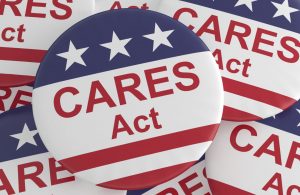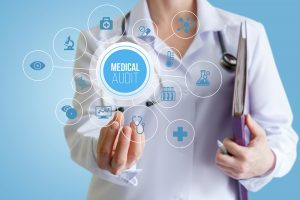Telemedicine has new and profound importance due to the COVID-19 crisis. “Virtual” healthcare preserves patient protective equipment that would otherwi se be used and allows physicians to manage chronic illnesses remotely, without the in-person interaction that exposes provider and patient to the risk of spread. This increased reliance on telemedicine has prompted state and federal legislative bodies to pass new rules and guidelines to promote access to telehealth services by reducing costs, increasing availability, and promoting relationships between healthcare providers and their patients. Our Georgia-based business and healthcare law firm follows regulatory developments that impact healthcare providers. As of the date of this post, seven states (Arizona, Florida, Kansas, Maine, New Jersey, Oregon, and Utah) have waived restrictions on telehealth. More relaxation of telehealth rules may be expected.
se be used and allows physicians to manage chronic illnesses remotely, without the in-person interaction that exposes provider and patient to the risk of spread. This increased reliance on telemedicine has prompted state and federal legislative bodies to pass new rules and guidelines to promote access to telehealth services by reducing costs, increasing availability, and promoting relationships between healthcare providers and their patients. Our Georgia-based business and healthcare law firm follows regulatory developments that impact healthcare providers. As of the date of this post, seven states (Arizona, Florida, Kansas, Maine, New Jersey, Oregon, and Utah) have waived restrictions on telehealth. More relaxation of telehealth rules may be expected.
New Regulations: an Overview
Virtual medicine is expected to aid in slowing the spread of coronavirus by limiting contact between individuals. New telemedicine regulations encourage video and audio conversations between providers and their patients. Telemedicine platforms can serve a variety of functions, some assist with managing patient triage, while others provide alerts to providers and patients in regard to medication management. Other platforms allow for effective monitoring of chronic illnesses for patients, even with the strict social distancing guidelines that are currently in place. Thus, as part of an effort to allow healthcare providers to better support each other and their patients, the federal government has reduced the regulatory hoops that have previously limited access to Telehealth services. The CMS Fact Sheet discusses in depth the changes that have been made to provide virtual services.
 Total Health Law Blog
Total Health Law Blog



 government organizations that experienced revenue losses from COVID-19. The purpose of the Act is to offer financial relief and to establish telehealth benefits for patients needing non-COVID-19 services. Section A of the Act authorizes programs for relief and contains information about mandatory spending provisions, while section B contains provisions regarding discretionary and emergency appropriations. Over the next few weeks, this blog will discuss recent changes to the CARES Act, and the impact that those modifications are having on hospitals and physician practices. This post provides a brief overview of the CARES Act, as well as the attestation process that providers must follow upon receiving funds.
government organizations that experienced revenue losses from COVID-19. The purpose of the Act is to offer financial relief and to establish telehealth benefits for patients needing non-COVID-19 services. Section A of the Act authorizes programs for relief and contains information about mandatory spending provisions, while section B contains provisions regarding discretionary and emergency appropriations. Over the next few weeks, this blog will discuss recent changes to the CARES Act, and the impact that those modifications are having on hospitals and physician practices. This post provides a brief overview of the CARES Act, as well as the attestation process that providers must follow upon receiving funds. to audit providers suspected of fraud. UPIC contracts combine Zone Program Integrity Contractors (ZPIC’s) and Medicaid Integrity Contractors (MIC’s) to coordinate Medicare and Medicaid auditing. UPIC’s focus primarily on Medicare claims, and seek to distinguish between provider billing errors or fraud.
to audit providers suspected of fraud. UPIC contracts combine Zone Program Integrity Contractors (ZPIC’s) and Medicaid Integrity Contractors (MIC’s) to coordinate Medicare and Medicaid auditing. UPIC’s focus primarily on Medicare claims, and seek to distinguish between provider billing errors or fraud. se be used and allows physicians to manage chronic illnesses remotely, without the in-person interaction that exposes provider and patient to the risk of spread. This increased reliance on telemedicine has prompted state and federal legislative bodies to pass new rules and guidelines to promote access to telehealth services by reducing costs, increasing availability, and promoting relationships between healthcare providers and their patients. Our Georgia-based business and healthcare law firm follows regulatory developments that impact healthcare providers. As of the date of this post, seven states (Arizona, Florida, Kansas, Maine, New Jersey, Oregon, and Utah) have waived restrictions on telehealth. More relaxation of telehealth rules may be expected.
se be used and allows physicians to manage chronic illnesses remotely, without the in-person interaction that exposes provider and patient to the risk of spread. This increased reliance on telemedicine has prompted state and federal legislative bodies to pass new rules and guidelines to promote access to telehealth services by reducing costs, increasing availability, and promoting relationships between healthcare providers and their patients. Our Georgia-based business and healthcare law firm follows regulatory developments that impact healthcare providers. As of the date of this post, seven states (Arizona, Florida, Kansas, Maine, New Jersey, Oregon, and Utah) have waived restrictions on telehealth. More relaxation of telehealth rules may be expected.
 Today, the United States Department of Justice announced by
Today, the United States Department of Justice announced by 
 Our Georgia and South Carolina healthcare law firm has learned that the United States Department of Justice issued a
Our Georgia and South Carolina healthcare law firm has learned that the United States Department of Justice issued a